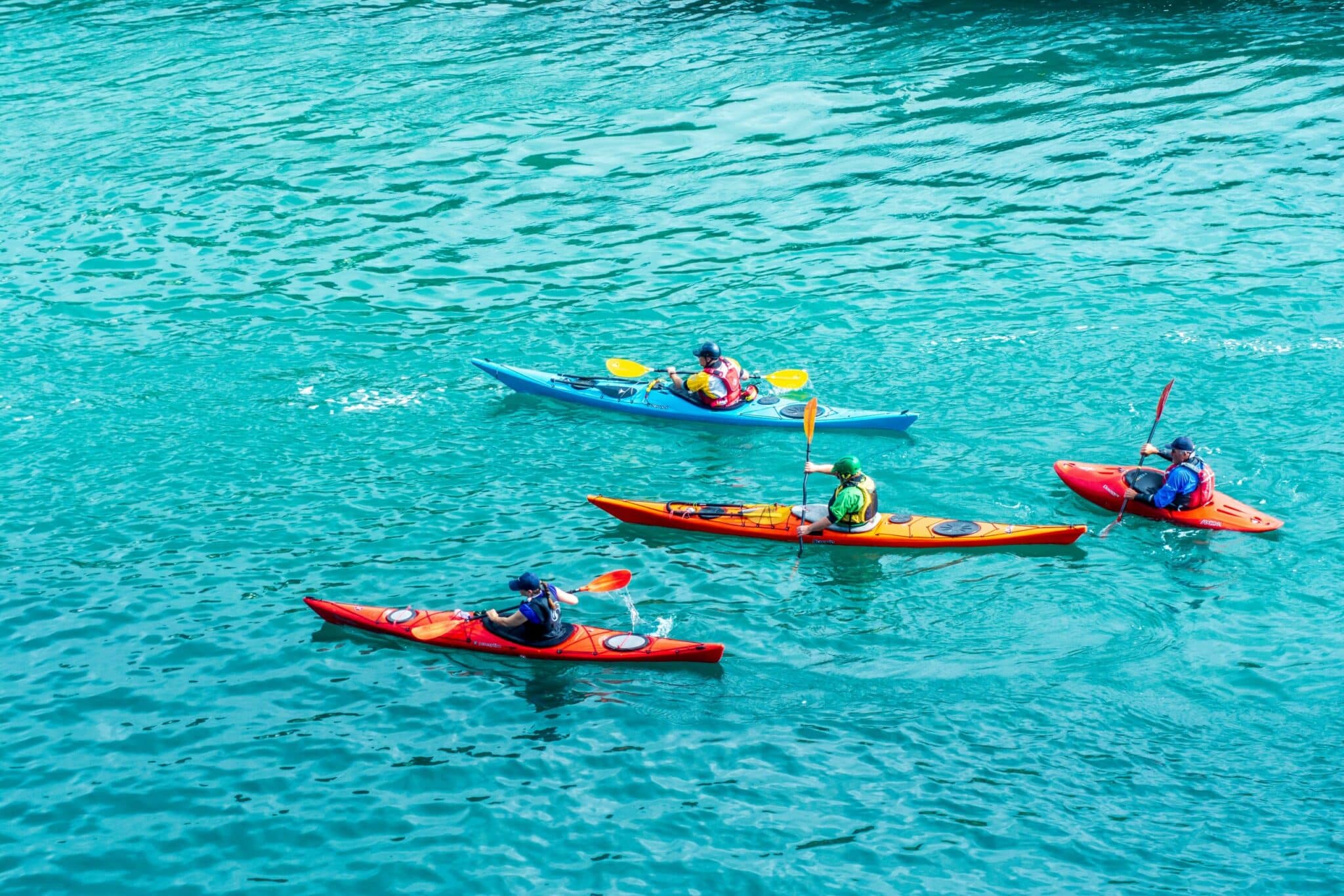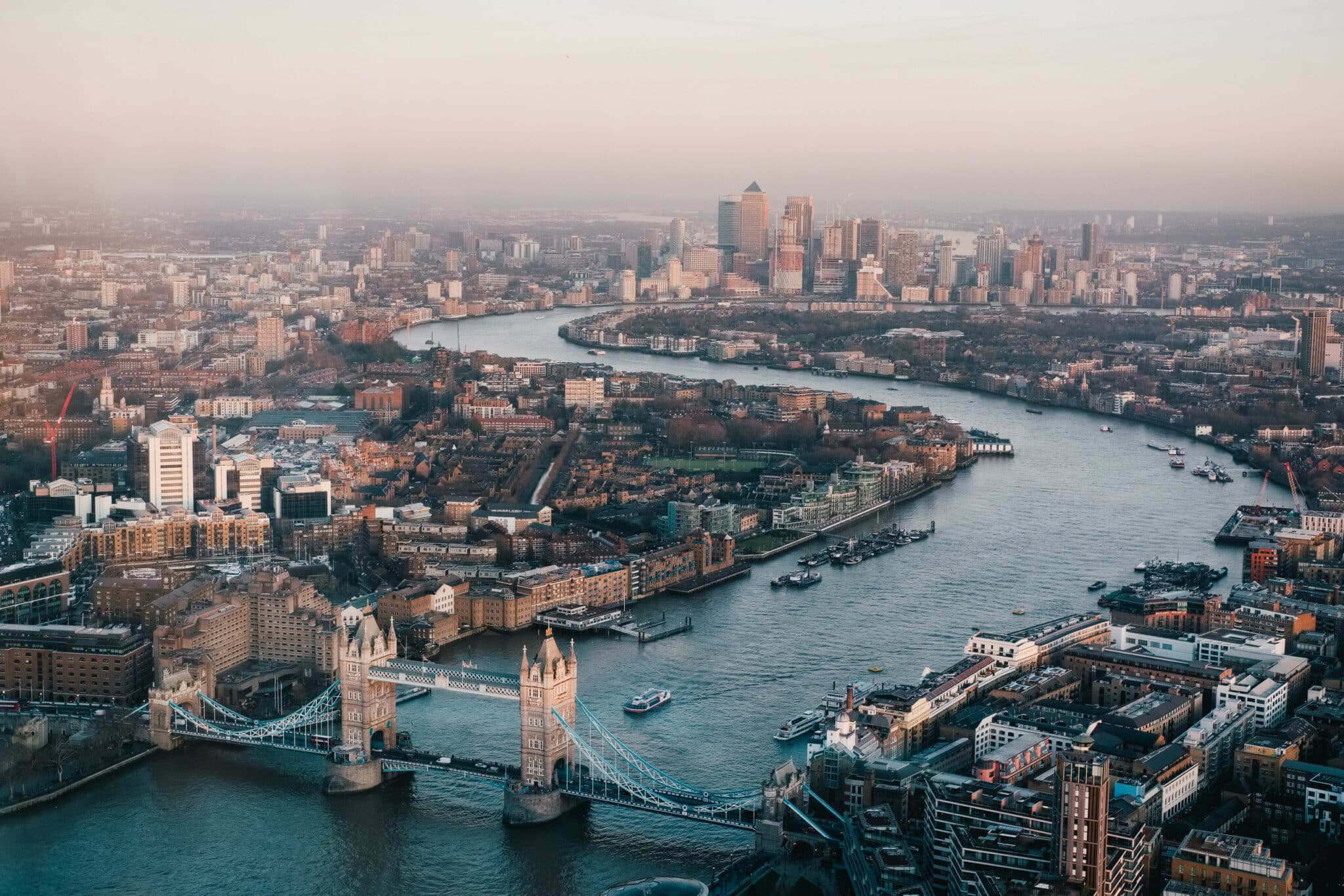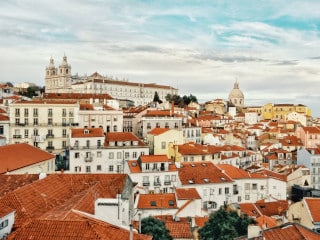Olá damas and gentlemen! Here you’ll be able to find everything you need to know about Portugal’s time zone. Today, we will be writing about how time relates to the typical Portuguese lifestyle. We hope to make it easier for those who wish to visit or move to Portugal or for those who need to communicate with someone in Portugal.
So, what time is it in Portugal now?
Location, location, location… Portugal is located in the Iberian Peninsula, right next to Spain, in the south-west of Europe. Lisbon, its capital, has the following coordinates: 38º42’N 9º10’W. That means that Portugal is within the Greenwich Mean Time (GMT) time zone. Some other countries in the same time zone are, for example:
- United Kingdom
- Ireland
- Morocco
- Senegal
- Sierra Leone
- Togo
- Liberia
- Mali
But what defines a time zone?
You could be asking yourself why are there so many time zones? Just bear with us for a simple explanation and everything will make sense in a few minutes. Imagine we would only have one time zone. That would mean that at noon in London, for example, would also be noon in New York, even though the sun would be barely rising there. In the 1800s scientists thought about this problem and tried to solve it. They evaluated how much the Earth rotates on its own imaginary axis in an hour, given that it rotates 360º in 24 hours. The answer was approximately 15º. So they picked one longitude (the Prime Meridian (Greenwich) because of the Royal Observatory in the UK) and they defined that at every 15º to the west, it would be one hour less than in the previous time zone. The contrary happens to the east, that is, we add one hour for each 15º we move in that direction.
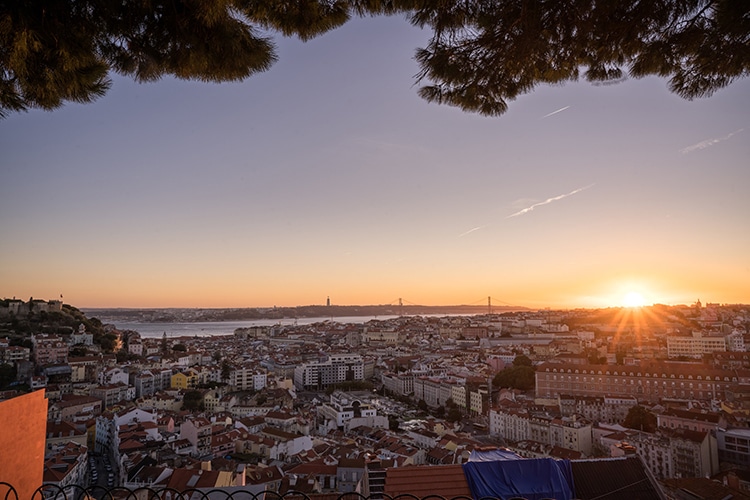
Getting back to Portugal
As we said at the beginning, Portugal is within the GMT time zone. There is, however, a small exception: the Azores Islands. Portugal consists of the mainland and the islands of Azores and Madeira which are located in the Atlantic Ocean. The Azores Islands are located at 37º44’28’’N 25º40’32’’W, which puts them in the GMT-1 time zone. That means that they are one hour behind mainland Portugal and Madeira. Portugal is a fairly narrow country. It is a little over 200 km (124 miles) wide and about 900 km (560 miles) long. This means that it is too narrow to see the differences of the sunrise and sunset along the most eastern and most western parts of the mainland. It happens almost at the same time. Therefore, all the cities in continental Portugal are on the same time zone, from Viana do Castelo (north), to Faro (south), and from Vilar Formoso (a town on the border with Spain), to Lisbon (west).
Why do Portugal and Spain have different time zones?
Although the two countries share a border and share the Iberian Peninsula, they have different time zones. Spain is in the GMT+1 time zone. That means that Spain is an hour ahead of Portugal. The reason behind this is the fact that Spain is already more than 15º to the east of the Greenwich Meridian, and so (as explained above) it fits in that time zone.
Does the hour change between summer and winter time?
Some countries decided to change their hours according to the time of the year. The concept is called Daylight Saving Time (DST) and it is something that allows everyone more time of sunshine in the summer. Portugal is no exception. Usually, the time changes in late October and in late March. In October the clocks are set an hour behind and in March they are set to an hour ahead. This situation may change in the near future. The Portuguese government is debating if Portugal should or shouldn’t accept the EU recommendation and stop changing the time. We shall wait and see.
Sunrise and sunset
Portugal is known to have many hours of daytime. On the 21st of June, the longest day in the Northern Hemisphere, Portugal has about 15 hours of light! The day with the least hours of light is the 21st of December, the shortest day of the year in the Northern Hemisphere, with a little more than 9 hours (which is still a lot). That, and the fact that Portugal has allegedly near 300 days of sunshine per year, gives you the perfect excuse to enjoy your day outdoors, every day.
A taste of the southern (and Portuguese) lifestyle
With so much sun and so much daytime, you would expect Portuguese people to be always outside. Well, the truth is, that it depends. It depends on the job, on the working schedule, family and other factors.
Working schedule
One thing is for sure: Portuguese people do not give up their lunchtime. To work a whole day and have lunch in a hurry is something that is not very well-accepted culturally. Therefore, lunch breaks usually last, at least, an hour.
The (not so) early bird
Another interesting thing is that, generally, Portuguese people don’t like to get up very early in the morning. The later they get up, the better. Waking up earlier than 8 am is considered a sacrifice, and they would rather avoid it. This means that stores and services usually open from 9 or 10 am, have a lunch break from maybe 12 pm until 1 or 2 pm and then close at usually, 7 or 8 pm. In shopping centres, stores are usually open until 11 pm, so you get the idea.
School
Since their parents usually work until late in the afternoon, children must have a compatible school schedule. Usually, kids begin school at 8.30 am and end at 5 or 6 pm (sometimes even later).
But then what?
When all the responsibilities are done for the day, the real fun begins. There is one thing that is very typical for Portuguese people to do; go to a café after their working hours. Usually, they meet with friends and colleagues, drink an espresso or something cold and refreshing, and talk about everyday topics. Then, at around 8 pm, people usually go shopping and then go home to make dinner. Some would consider that to be very late, but it’s quite normal in Portugal.
Weekends
Unless they are working, the weekends are great opportunities for people to get out and go to meet friends. Once again, the good weather and the long daytime make people want to get out of their houses and go to a terrace or “esplanada” and enjoy the weather. The hot days usually give way to pleasant nights and many people go out to a café, nightclub or just for a walk in the lively streets.
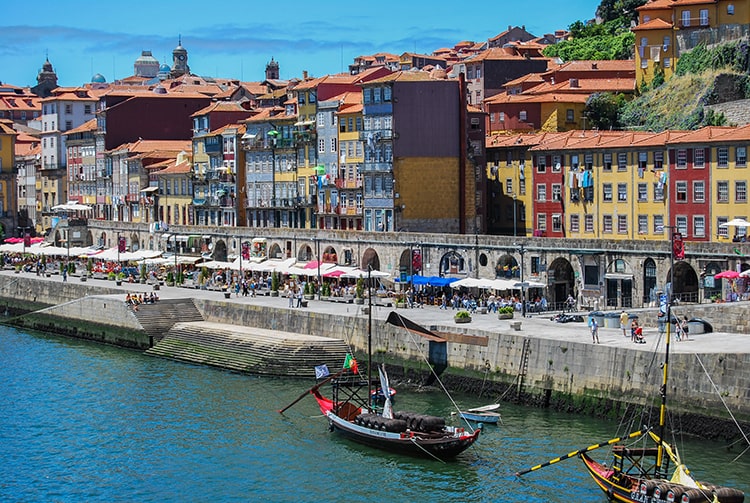
Take your time in Portugal
You can see how time can deeply influence a culture and create a way of life. Time makes Portugal an excellent place to visit or to live in. Its time zone sets the country in a central position when compared with the rest of the world (excellent for business), and the fact that the hour shifts according to the daylight makes it so much easier to have a great social life outside the busy working schedule. Whether you go for a walk on the beach or simply to a café, chances are that you’ll still be able to have a lot of fun. And in those rare rainy days? You can stay home and watch a good movie, read a good book or prepare for your next day. Whatever you do, the next long and shiny day will be there in no time. Just trust us! Did we answer all of your queries about the time in Portugal? Do you have any experiences to share? Feel free to leave a comment below.We publish new content every day so be sure to subscribe to our newsletter to get notified of the latest tips for your visit to Portugal.


